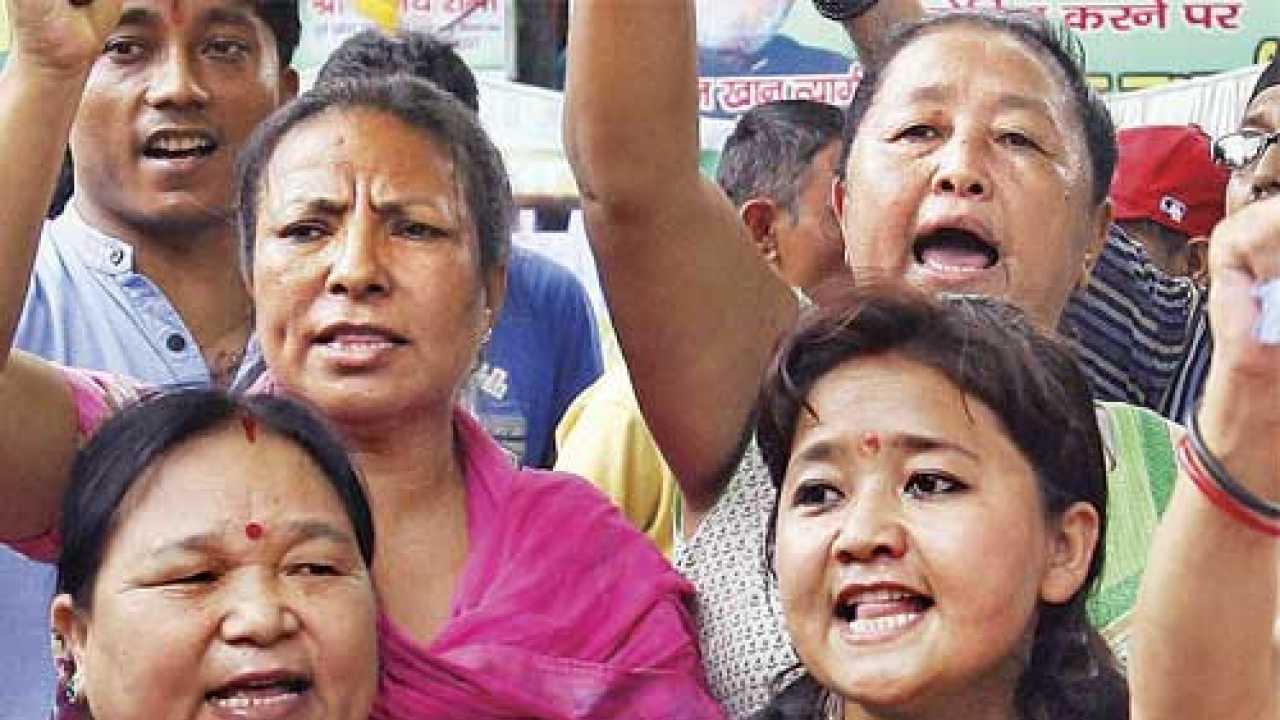
With the birth of Telangana, the UPA has paved the way for vociferous demands for balkanisation of several other states of India. Clamour for Gorkhaland and Bodoland, accompanied by strikes and violence, is growing louder in West Bengal and Assam, respectively.
Telangana is being seen as a by-product of the Congress’ desperate electoral calculations, its fears of facing a complete washout in the 2014 elections. The move, predictably, has stoked passions of diverse ethnic groups in the country. Each of them now considering militant strategies to force the Centre to accede to their demands.
Take a look at the sudden resurgence in the Gorkhaland and Bodoland movements. Rooted in ethnic identity, both agitations, characterised by spurts of violence, are decades old. There’s, however, the equally important factor of the continued backwardness of the regions which has driven the people to the path of agitation. In Darjeeling, for instance, lack of drinking water and dismal infrastructure have been long-standing issues. The Left Front government under Jyoti Basu and Buddhadeb Bhattacharjee took little interest in the welfare of the people in the hills. The rise of Subhas Ghising, the founder of Gorkha National Liberation Front, was perceived as posing a militant challenge to the Left’s indifference. When Ghising’s efforts began to lose edge, the Gorkha Janmukti Morcha headed by Bimal Gurung took charge.
After coming to power Mamata Banerjee tried to redress the region’s backwardness by launching a slew of developmental measures. Through the formation of the Gorkha Territorial Administration in 2011, she hoped to rein in the political volatility. But the Telangana announcement has shattered the peace. Gurung who has resigned from the GTA is on a collision course with the chief minister, standing firm in her opposition to splitting Bengal.
The problem is further exacerbated in the neighbouring Assam, where the Bodos have been joined by the Karbis, Dimasas and Koch-Rajbangshis in renewing their agitations for respective states. Their do-or-die statements bode ill for the state, especially given Assam’s long history of violence. Recall that before the current agitation for Bodoland spearheaded by the All Bodo Students Union, the issue of illegal migration had taken an ugly turn. That was only a few months ago.
At the root of these movements is the growing fear of demographic change induced by the entry of non-Assamese migrants. The scramble for access to the region’s meagre resources and lack of opportunities for a better livelihood have further heightened these insecurities.
The recent comments of Telangana Rashtra Samithi chief K Chandrasekhar Rao, ordering government employees of coastal and southern Andhra Pradesh to go back to the region do little to allay these fears.
The need of the hour is for all stakeholders to engage in a serious debate on smaller states: a discourse that can hardly be shelved any longer.